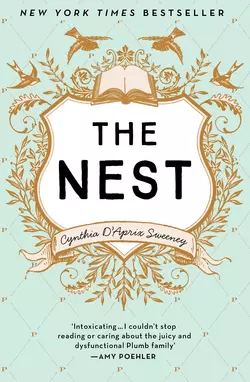The Nest: America’s hottest new bestseller

Cynthia Sweeney
Тип: электронная книга
Жанр: Современная зарубежная литература
Язык: на английском языке
Стоимость: 463.36 ₽
Статус: В продаже
Издательство: HarperCollins
Дата публикации: 16.04.2024
Отзывы: Пока нет Добавить отзыв
О книге: THE NEW YORK TIMES BESTSELLER‘I couldn′t stop reading or caring about the juicy and dysfunctional Plumb family’ AMY POEHLER‘A masterfully constructed, darkly comic, and immensely captivating tale…Cynthia D′Aprix Sweeney is a real talent’ ELIZABETH GILBERTA sharp and funny debut about a wonderfully dysfunctional New York family and the three grown-up siblings fighting to save the family money pot – the ‘nest’ – as their oldest brother threatens to lose it all.When Leo Plumb drives off drunk from a party in a sports car with a nineteen-year-old waitress in tow, to the moral and legal fallout must be added the horrible inconvenience to his brother and sisters. Leo’s rehab costs have severely depleted ‘the nest’ – the family’s joint trust fund that would have cut them loose from their myriad financial issues.For Melody, a suburban wife and mother, it was to cover both an unwieldy mortgage and her daughters’ college tuition. Antiques dealer Jack has secretly borrowed against the beach cottage he shares with his husband. And Beatrice, a once-promising short story writer, can’t seem to finish her overdue novel.Brought together as never before, the Plumb siblings must grapple with old resentments, present-day truths, and the significant emotional and financial toll of the accident, as well as finally acknowledging the choices they have made in their own lives.Ferociously astute, warm and funny, The Nest is a brilliant debut chronicling the hilarity and savagery of family life.